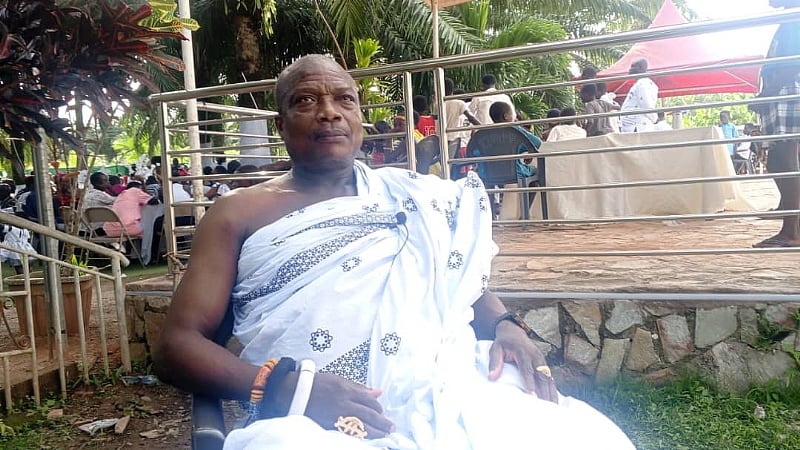In a bold move to stimulate economic growth and create employment opportunities, Nana Munumkum Gyabi, the Chief of Ostir near Anomabo in the Mfantseman Municipality of the Central Region, has demarcated over 5000 acres of land for local and foreign investors.
The traditional leader has already allocated more than 500 acres each to a pineapple processing factory and a cassava processing factory, demonstrating his commitment to agricultural industrialisation in the area.
The Ostir community, which is renowned for its fertile soil suitable for fruits, vegetables and root crops cultivation, is positioning itself as an investment hub in the Central Region.
Speaking to this reporter, Nana Gyabi extended an invitation to investors worldwide to take advantage of the area’s agricultural potential.
He also called on indigenes living abroad and in other parts of Ghana to return home and contribute to the development of their community for mutual benefit.
“My doors are widely opened to all and I am ready to assist in accelerating the development of this area,” the Chief stated.
While highlighting that the community enjoys access to reliable utilities, Nana Gyabi expressed concern about the terrible road network that requires immediate attention.
He also appealed for support to complete ongoing sanitary facilities and a Community-based Health Planning and Services (CHPS) compound to improve healthcare access for residents.
The facility is crucial to bringing essential healthcare services closer to people who otherwise face barriers due to distance from health facilities.
It will also provide basic preventive, curative and promotional health services directly in the community, improving access to antenatal care, skilled birth attendance and treatment for common ailments, which significantly reduces maternal and child mortality rates.
Despite the many challenges faced by the community, he expressed deep concern over the persistent lack of job opportunities in the area.
This unemployment crisis has unfortunately contributed to a rise in teenage pregnancies, which in turn exacerbates the socio-economic difficulties confronting the community.
Poverty, among other factors, led some unscrupulous men to lure many young girls into unprotected sex, resulting in teenage pregnancies.
He emphasised the urgent need for intervention, stating, “Many of the youth here are unemployed and struggling to find a path forward.
“It is crucial that NGOs and government step in to provide vocational and skills training programmes that can empower our young people, partiygirls and open doors to sustainable livelihoods,” he emphasised.
In addition, Abuapayin Kwao Abbey made a heartfelt appeal for unity among the residents, urging everyone to actively participate and contribute their share toward the development of their community.
He said the progress of any thriving community was built on the collective efforts and dedication of its people, stressing that government support alone cannot puah the transformation needed.
He remarked, “Communities that have flourished did so because their people came together, pooling resources, ideas, and labour.
“True development is a shared responsibility and only through unity and active participation can we build a better future for ourselves. Development is not a gift from above, but a harvest sown by the hands of a united people.”


